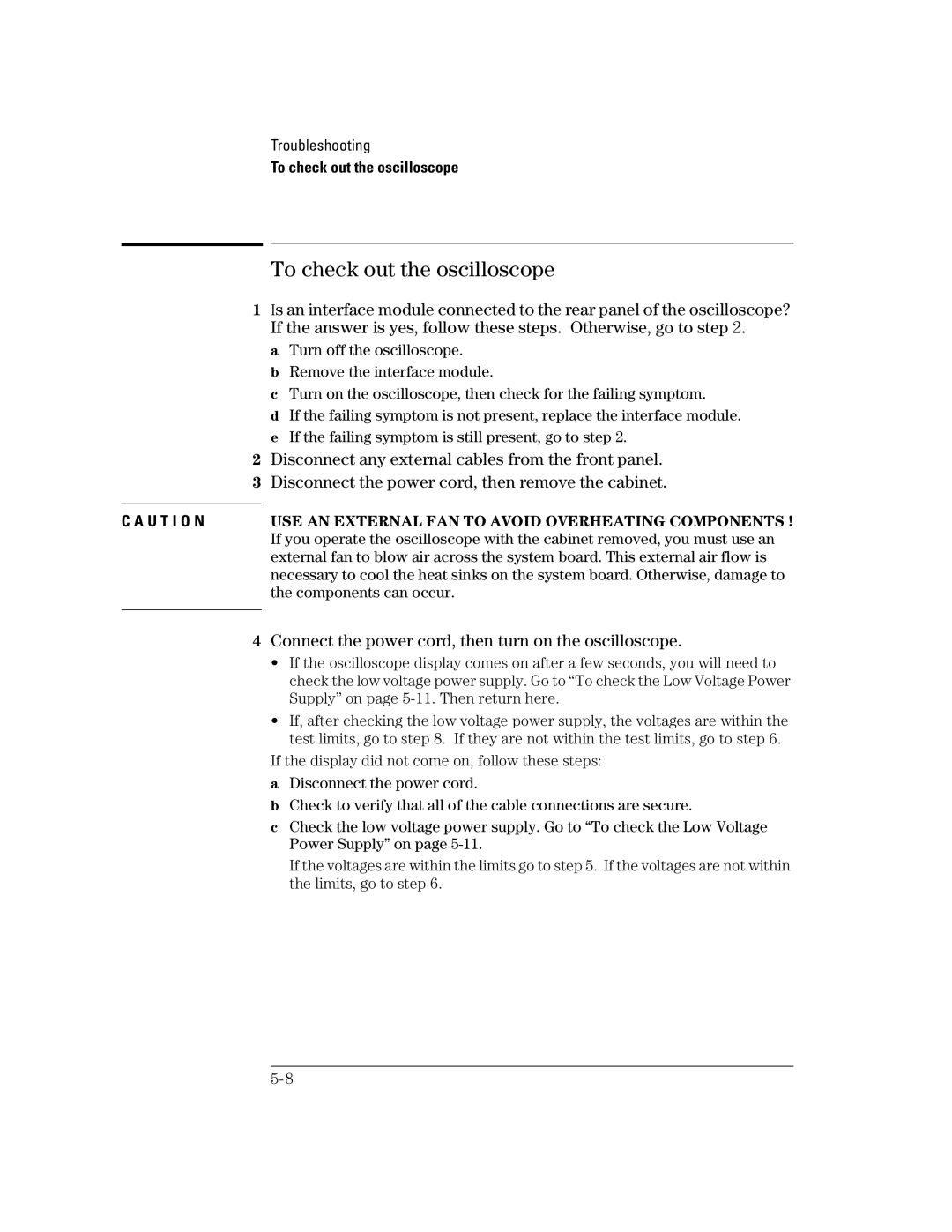
Troubleshooting
To check out the oscilloscope
To check out the oscilloscope
1Is an interface module connected to the rear panel of the oscilloscope? If the answer is yes, follow these steps. Otherwise, go to step 2.
a Turn off the oscilloscope.
b Remove the interface module.
c Turn on the oscilloscope, then check for the failing symptom.
d If the failing symptom is not present, replace the interface module. e If the failing symptom is still present, go to step 2.
2Disconnect any external cables from the front panel.
3 Disconnect the power cord, then remove the cabinet.
C A U T I O N | USE AN EXTERNAL FAN TO AVOID OVERHEATING COMPONENTS ! |
| If you operate the oscilloscope with the cabinet removed, you must use an |
| external fan to blow air across the system board. This external air flow is |
| necessary to cool the heat sinks on the system board. Otherwise, damage to |
| the components can occur. |
|
|
4Connect the power cord, then turn on the oscilloscope.
•If the oscilloscope display comes on after a few seconds, you will need to check the low voltage power supply. Go to “To check the Low Voltage Power Supply” on page
•If, after checking the low voltage power supply, the voltages are within the test limits, go to step 8. If they are not within the test limits, go to step 6.
If the display did not come on, follow these steps:
aDisconnect the power cord.
bCheck to verify that all of the cable connections are secure.
cCheck the low voltage power supply. Go to “To check the Low Voltage Power Supply” on page
If the voltages are within the limits go to step 5. If the voltages are not within the limits, go to step 6.
